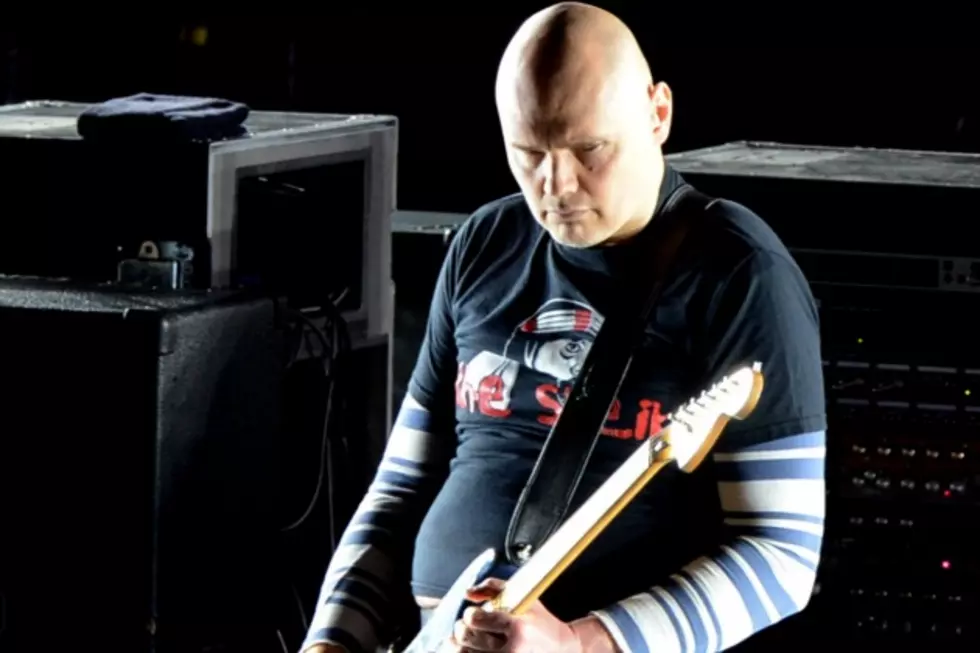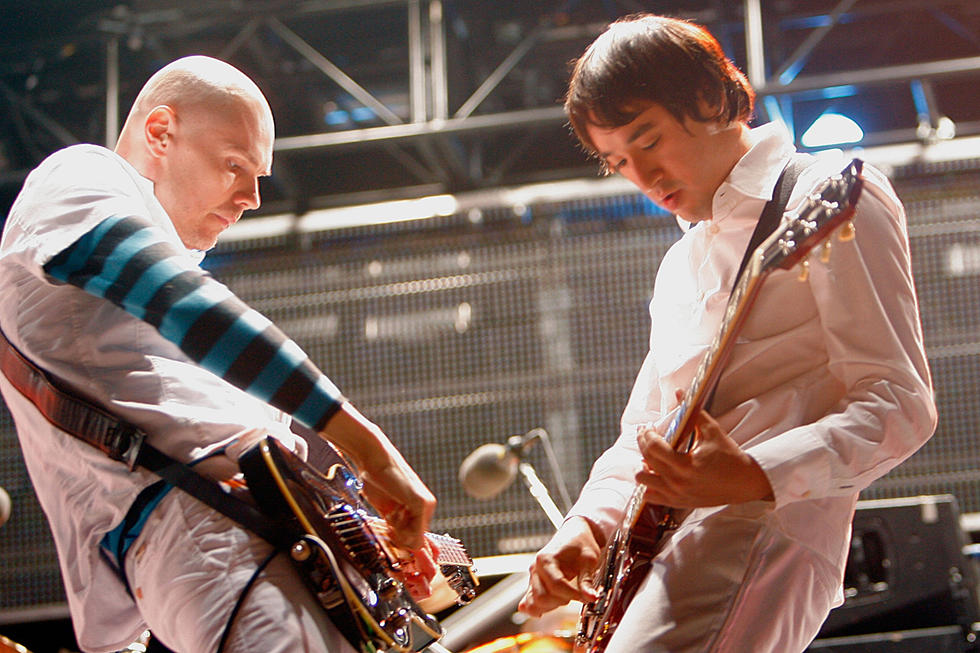
Billy Corgan Contemplates Ending Smashing Pumpkins Again
Getting the audience to tune into your new music as eagerly as they played the "classic" stuff is a struggle every veteran act faces at some point. But for Billy Corgan, it seems like it's a cross that's particularly heavy to bear.
The Smashing Pumpkins frontman shared his frustration in an interview with the Chicago Tribune, admitting, "The number one problem for Smashing Pumpkins et al. is that the general public does not see the band as a contemporary band ... My focus is, Can I get an album out there that the general guy will go, 'I'll listen to that -- and actually I want to go to a show and actually hear this material'?"
To that end, Corgan's working hard to ensure commercial relevancy for the next Smashing Pumpkins LP, 'Monuments to an Elegy,' which, he told the Tribune, he sees as "a pop album" and seems to be hoping will compete against the current crop of Top 40 artists. "I still think you can present people with very simple choices," he argued. "So if pop music is king, you have to beat people at their own game. Because I'm not going to get the indie vote."
'Monuments' will be followed by another Pumpkins LP, tentatively titled 'Day for Night,' after which Corgan sees himself possibly retiring the band name for good -- or maybe even walking away from his recording career completely.
"When this process is over, I'm either going to bail on this ship for good, like 'I'm done,' or I'm going to have a new ship to sail on," he continued, venting his frustration as an artist in the streaming era. "How do you reach through the fog as an artist? How do you punch your way back through? How do you say, 'I still matter'? How do you say, 'How does one of my contemporaries get treated like a contemporary artist, and how do I get treated like I'm supposed to play 'Siamese Dream' for the rest of my life?' At some point you've got to fight this fight or go away."
Particularly perturbing to Corgan is the audience's evident unwillingness to follow his post-Pumpkins journey, despite the fact that he was largely responsible for the sound and content of the group's best-loved material. "I never, never, ever would have thought I would have been in these set of circumstances," he said. "I never thought you could have the pedigree that I had through one particular period of my life, and then when I stepped out of it, it didn't follow me. Then I would be like: 'Do you realize I wrote all those songs?' ... I was like, OK, I'm a solo artist now, but somehow I don't get to take that cache with me."
More From Ultimate Classic Rock









